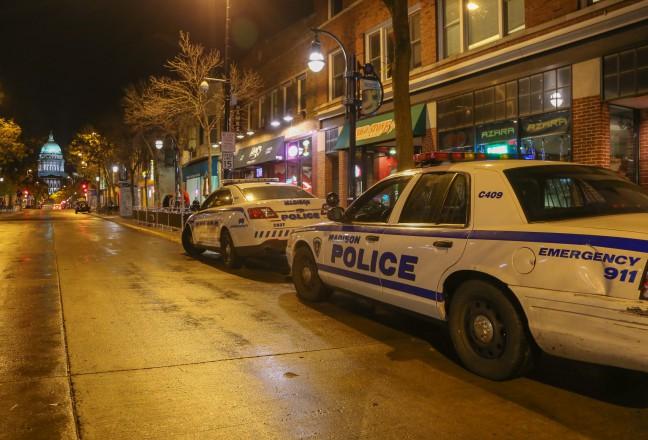In the wake of tensions arising over a recent bill proposal which would affect police departments’ ability to seize property in an arrest, it is clear law enforcement needs to take a look in the mirror and re-evaluate their priorities as an institute of criminal justice.
Police departments across the state have been putting the proposed legislation on blast.
Under current statutes, law enforcement can seize and sell property that has been determined to be related to a crime. And those dastardly crooks can’t do anything about it — even if it turns out they’re not guilty.
This bill, which has gotten bi-partisan support, would hinder the police departments’ habits of keeping and selling various objects seized in arrests until after the arrestee is actually found guilty.
Ideally, this would prevent them from taking advantage of innocent people who lack the financial support to hire a lawyer to protect them in these instances.
That doesn’t sound too terribly unreasonable.
But as it turns out, law enforcement is up in arms over this because under the current laws, they can quickly seize property and vehicles that would otherwise be used in crimes. Along with that, a substantial portion of their funding is a direct result of these steals and deals. Substantial, as in $51 million over a 13 year span between 2000 and 2013.
The problem is police can seize property during an arrest and then sell it for profit on no more than a hunch — and the arrestee will be convicted before a trial even takes place.
We should remember due process of law; it goes a little something like, innocent until proven guilty in a court of law. No big deal, it just happens to be the foundation of this country’s criminal justice system.
According to Jennifer McDonald, co-author of the Policing for Profit study, police only have to show enough evidence to suggest the arrestee can be convicted in court. So in a sense, these district attorneys who give police the green light are declaring these people guilty far before any real trial can take place.
Apart from undermining one of the country’s most important legal ideals, the idea of turning the criminal justice system into any sort of capitalistic business is troubling.
If law enforcement needs these seizures for funding, a certain number of arrests and forfeitures will need to occur so the minimum funding can be fulfilled.
Essentially, these police departments are becoming businesses whose commodity is property seized in arrests. It doesn’t take an economics major to realize that these systems, which are supposed to stand for justice and fairness, can easily become skewed in the effort to make money.
If law enforcement is so concerned that property taken in arrests will fall back into use for crime before the person in question can actually be convicted, then the bill should be amended so the police can hold such property until a trial takes place.
Then, if the person is actually found guilty, the police can fully seize the property as a result. This would ensure that innocent people aren’t losing what is rightfully theirs simply because eager law enforcement is looking for more funding.
I want to see the successful pursuit of crime, but that endeavor should never come at the cost of the foundation of our criminal justice system.
Phil Michaelson ([email protected]) is a sophomore majoring in biomedical engineering.














